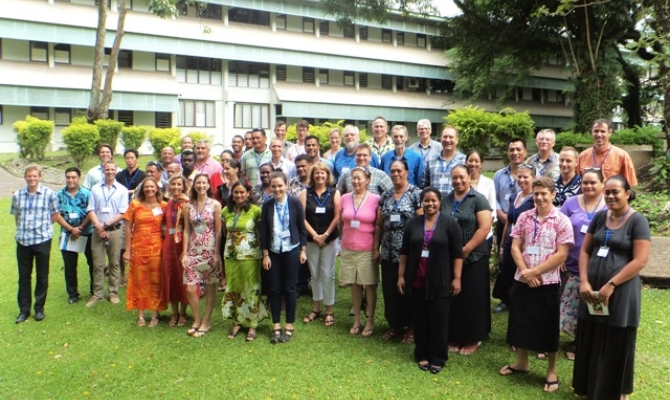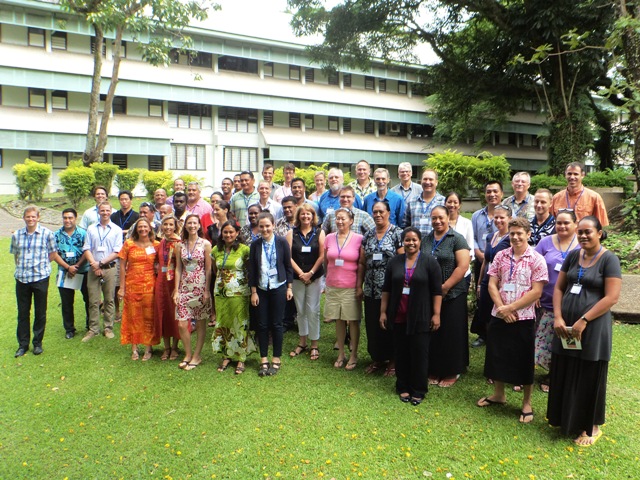
Biodiversity Conservation

28 November, Steve Pognowski, Marine Spatial Planning, Suva Fiji - Meeting biodiversity targets, building networks of regional agencies and creating income streams for traditional owners from natural therapies formed part of fourth-day workshop discussions at the University of South Pacific, Suva, Fiji on Thursday (28 November).
A key point mentioned several times throughout the day was the desire for coordinating agencies and government departments to work together on marine planning. One example was gaining consensus on establishing a marine protected area from environment, fisheries and land planning departments, communities and non-government organisations.
Morning presentations included the identified need to support Pacific island countries and territories to meet the Aichi Biodiversity Targets, set down by the Convention on Biological Diversity (CBD) in 2010. Sarat Gidda from CBD gave an impassioned speech on the progress of PICTs and challenges they faced in meeting the targets by 2020.
Access and benefit-sharing (ABS) also featured in a presentation on the Nagoya Protocol, which supports the ability of communities to gain income from developing or selling the rights to a commercial product made from organic compounds from their region.
Andreas Drews, of the ABS Initiative, said the long process leading to the signing of the Nagoya Protocol in 2010 had put in place a rigorous regulatory framework. He said the Protocol helped protect communities (that had used natural products for generations) from exploitation.
Other presentations explained the Regional Action Strategy, Pacific Oceanscape framework and identifying Ecologically or Biologically Significant Area (EBSAs).
Riibeta Abeta, MACBIO Regional Planning Officer in Suva, said the workshop was helping attendees find connections from other countries and similar projects for collaboration.
"It's easy to think that we are working by ourselves but we can have more cooperation with each other. There are already a lot of agencies, NGOs and government departments that are doing good work in the region and we can learn from each other, not compete with each other."
Three sessions were held in the afternoon: Healthy Islands – Healthy Oceans: The open standards; Input and comment on Regional Action Strategy; and Linking Protected Area networks: developing a Pacific Protected Areas Portal.
The Healthy Islands, Healthy Oceans session looked at evidence-based land/ocean management principles. Paula Deegan from Gondwana Link (Australia) discussed the lessons learned from collaborative land planning with traditional Indigenous owners in northern Australia.